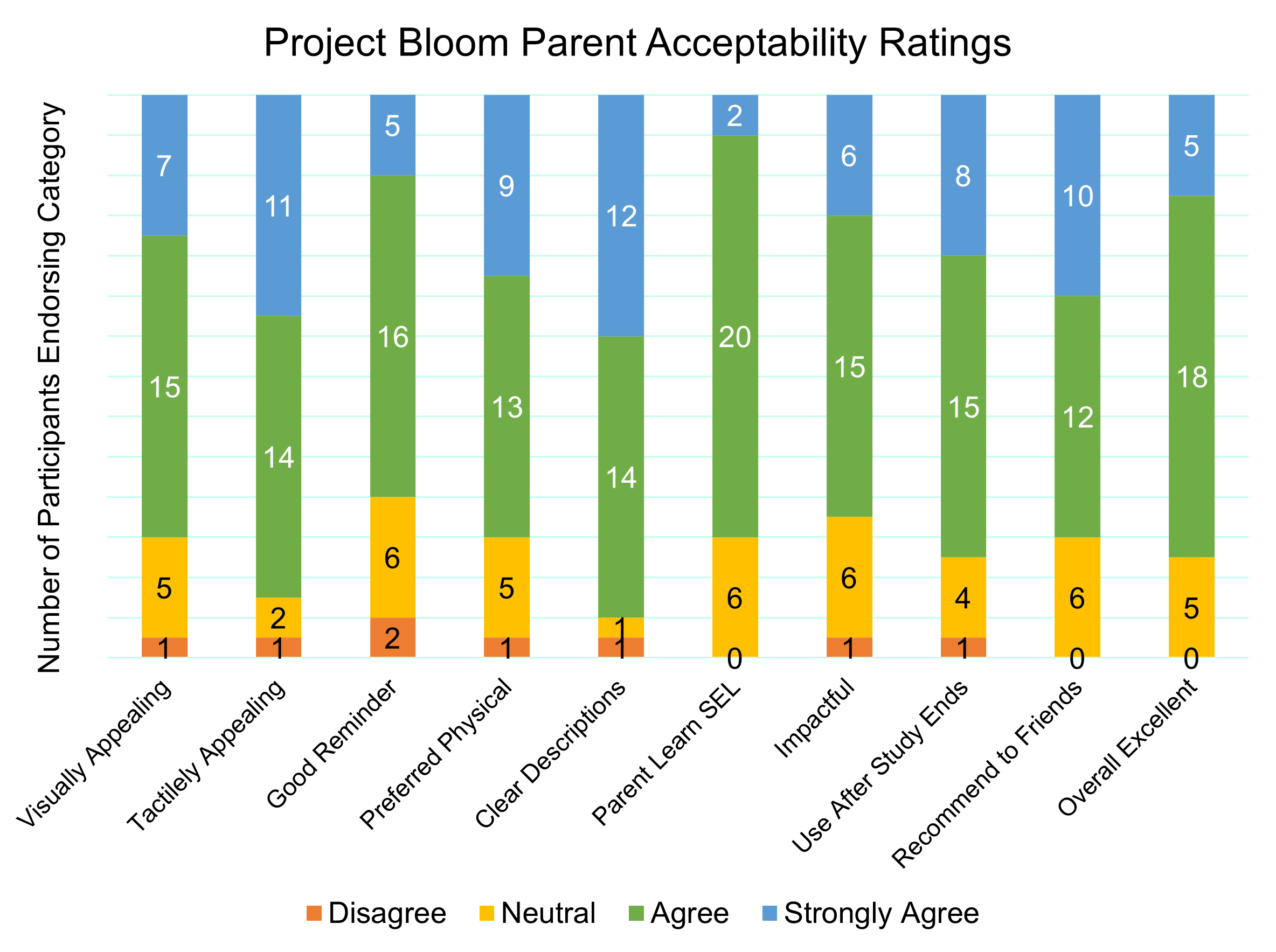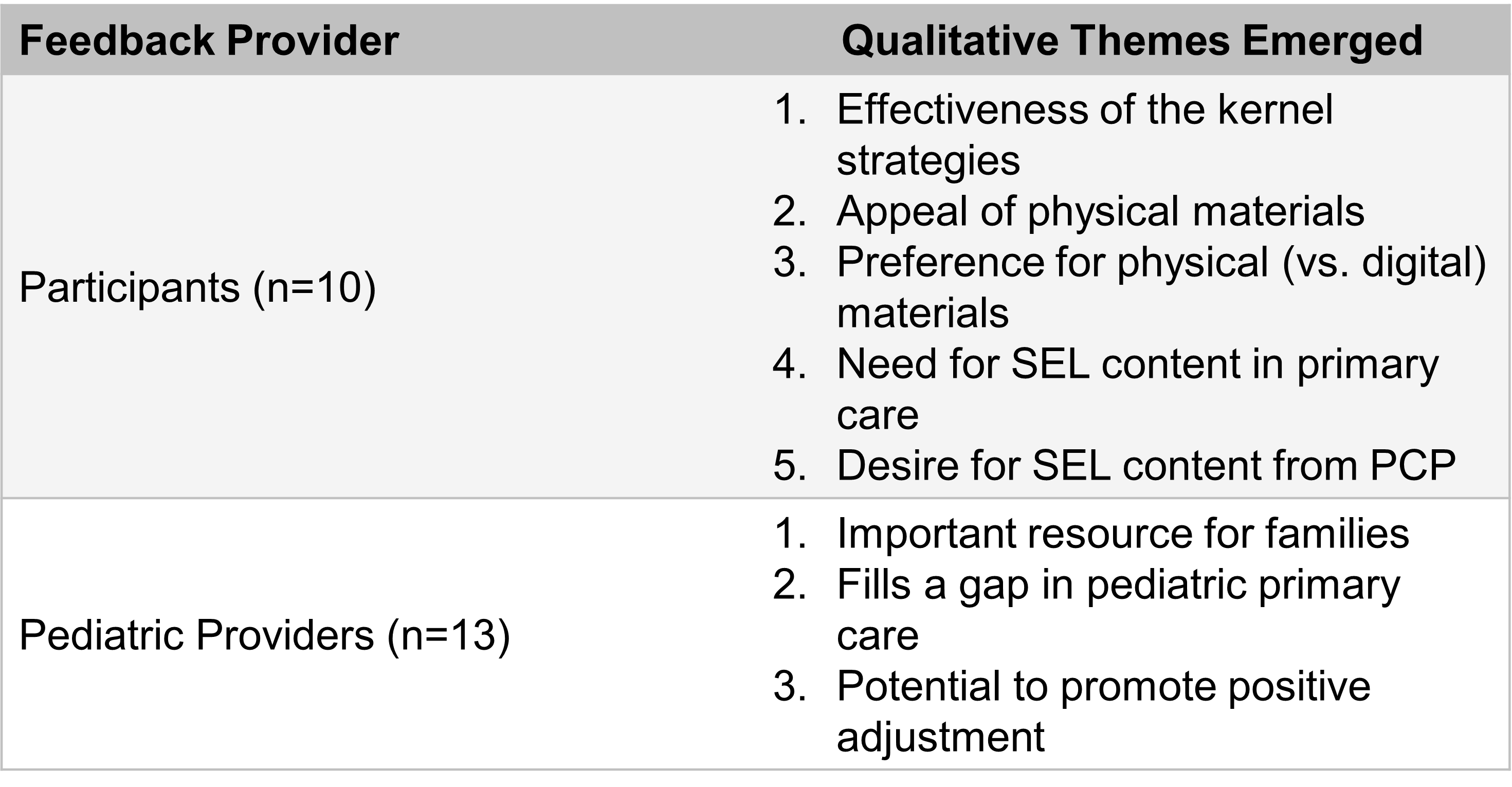Developmental and Behavioral Pediatrics 1: Parenting
Session: Developmental and Behavioral Pediatrics 1: Parenting
779 - A Feasibility and Acceptability Pilot Trial for a Social-Emotional Learning Intervention in Pediatric Primary Care
Friday, April 25, 2025
5:30pm - 7:45pm HST
Publication Number: 779.3751
Michael T. Sanders, Geisel School of Medicine at Dartmouth, Lebanon, NH, United States; mary k. jankowski, Dartmouth Health, Norwich, VT, United States; Susanne Tanski, Geisel School of Medicine at Dartmouth, Lebanon, NH, United States
- MS
Michael T. Sanders, PhD
Postdoctoral Fellow
Geisel School of Medicine at Dartmouth
Lebanon, New Hampshire, United States
Presenting Author(s)
Background: Childhood mental health problems are rapidly increasing without enough providers to meet the need. Early investment in social-emotional learning (SEL) skills has the potential to improve population-level wellbeing and prevent mental health problems. Although pediatric primary care has the capacity to drastically expand access to SEL content, low-burden programming remains undeveloped and understudied.
Objective: To address this gap, we created Project Bloom, a set of coordinated SEL skill infographics based on emerging research identifying core components of exemplar, evidence-based SEL programs delivered in schools. The current study reports on the initial non-randomized, pre-post, mixed methods pilot trial that evaluated the feasibility and acceptability of delivering two (of five) kernel strategies in pediatric primary care: belly breathing and interactive reading.
Design/Methods: Parents of all children ages 3–6 attending a well-child check at a primary care clinic in a rural academic medical center in Northern New England were eligible to participate in the study. Pediatric providers completed trainings in SEL and introduced the study to families. Interested parents recruited into the study worked with the study investigator to review protocols and receive the paper-based materials for asynchronous use at home. Parent acceptability was measured using a 20-question survey adapted for this study.
Results: We recruited 50 of 80 (63%) eligible parent-child dyads over the course of a 4-week recruitment period. Thirty-three (66%) parents of 3-6-year-old children (Mage = 4.39; 45% female; 76% White, 9% Asian, 3% Black, 12% Multiracial; 91% not Hispanic/Latinx) completed the baseline measures; 28 of 33 (85%) completed follow-up measures after using the materials at home for two weeks. Overall, 82% (n=23) of participants agreed or strongly agreed that the materials and content were excellent. Themes that emerged from follow-up interviews with parents (n=10) included appeal of the materials, effectiveness of the kernel strategies, and need for SEL content in primary care. Pediatric providers (n=13) indicated that Project Bloom fills a needed gap and can promote positive adjustment for children and families.
Conclusion(s): These findings illustrate the potential for simple, high-quality, SEL content to be delivered feasibly in the pediatric primary care setting. Results of future efficacy and longitudinal trials can support Project Bloom’s utility as a universal prevention program, carrying important implications for its use in pediatric systems to increase access to prevention and promote mental health equity.
Project Bloom Parent Acceptability Ratings

Project Bloom Qualitative Feedback Themes


